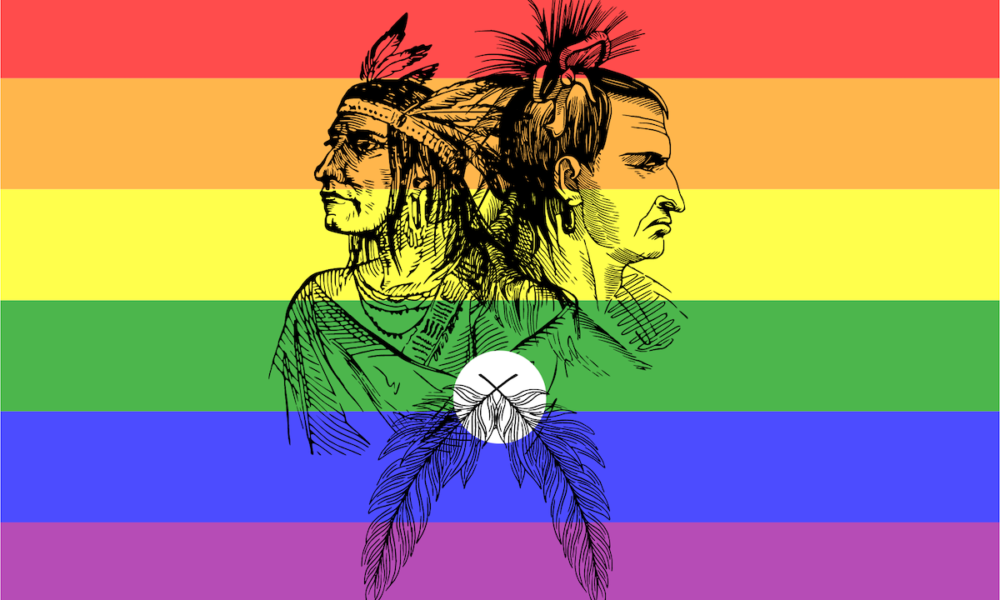Before colonization, Indigenous people lived free from the limiting binary restrictions imposed by European that modern America is used to.
Europeans took Indigenous people’s land, forced them to convert to their religion and stripped them of their language. Europe’s suffocating grasp on Indigenous life smothered every aspect of their existence, including gender.
Gabriel Estrada, a professor of religious studies at Long Beach State, is a tribes member of Caxcan and Rarámuri, two northern tribes in Mexico. Ze explained that prior to colonization, there was gender variance amongst Indigenous people, and went on to explain how the gender binary is part of a political system that persecutes gender.
“The gender that comes is imposed,” Estrada said. “It’s part of the colonial system—the way of controlling the Indigenous population to force them to change genders, with a preference for male power.”
For Indigenous people, there were no limitations of oppositional genders. Though Estrada explained there may have been concepts like masculine and feminine, the idea of strictly grouping individuals to either or wasn’t natural to them.
Instead, they recognize two-spirit people, which Estrada explained is an umbrella term for Indigenous LGBTQ+ people in contemporary times, although individuals may have their own language to describe their gender.
Although perspectives on gender and sexuality differs with each tribe, two-spirit people have been honored and respected just like every gender, Estrada said. Two-spirit people have the ability to bridge the masculine and feminine worlds, a connective concept that is omitted from the European gender binary.
Historically, two-spirit people have held significant roles in society. They have been healers or held ceremonial roles. Since they didn’t have biological children of their own, in some cases they would help out as extra parents, Estrada said.
“People don’t judge you based upon your gender, but what you do for your people,” Estrada said. “How helpful are you? That’s what’s important…All these phobia[s] that we have today were not prevalent, historically, before colonization. There are no wasted people by gender. Everyone can contribute to the society.”
But colonization changed that. At forced Indian Boarding Schools, Indigenous children were separated into male and female. Suddenly, two-spirit people had no place in society.
Although Indigenous people have returned home post-colonization, it’s difficult for many indigenous people to reclaim their gender identities. Many elders have forgotten these identities due to the trauma of being forced to assimilate into white American culture, Estrada said.
This “imposition of law and culture,” Estrada explained, was also an attack on Indigenous women, 84% of whom already experience violence in their lifetime, according to the Office of Justice Programs.
“You only allow males to own most land,” Estrada said. “You make the religion patriarchal; it’s the male God. Femininity becomes demonized and is seen as wicked; it’s seen as part of Eve’s fall. It divides the people themselves.”
Now, Indigenous people such as Estrada, who co-founded the City of Angels Two-Spirit Society, are creating the space and the conversation for people to reclaim their identities. Through Indigenous LGBTQ+ organizations, Estrada is aiming to educate and support the community.
“We’re still recovering and still restoring who we are,” Estrada said.




